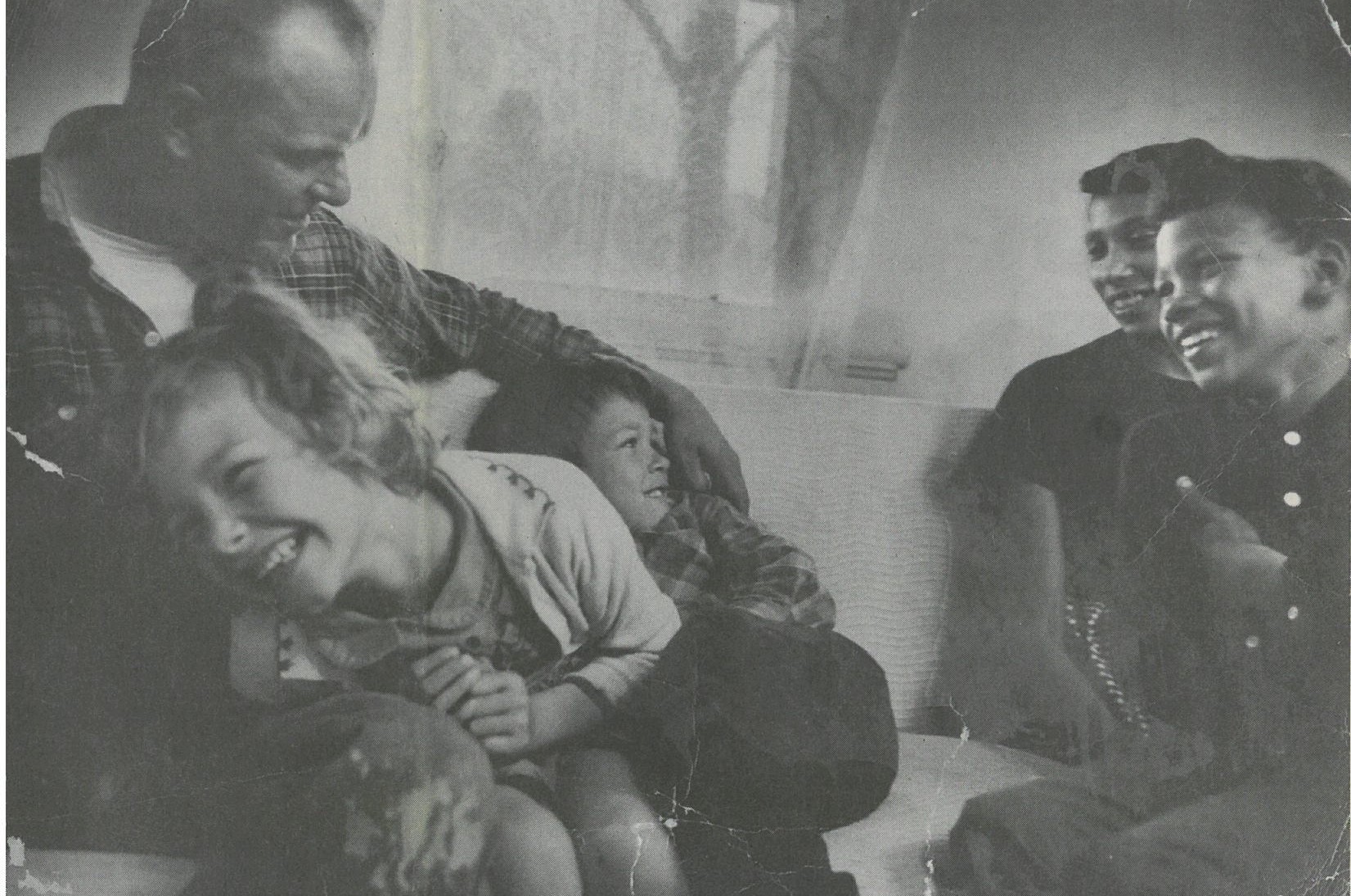

 The Loving family at play In Zablocki v Redhail (1978), the Court struck down a Wisconsin law that required persons under obligations to pay support for the children of previous relationships to obtain permission of a court to marry. The statute required such individuals to prove that they were in compliance with support orders and that marriage would not threaten the financial security of their previous offspring. The Court reasoned that marriage was "a fundamental right" triggering "rigorous scutiny" of Wisconsin's justifications under the Equal Protection Clause. In Turner v Safley (1987), the Court refused to apply strict scutiny to a Missouri prison regulation prohibiting inmates from marrying, absent a compelling reason. Instead, the Court found the regulation failed to meet even a lowered standard of "reasonableness" that it said it would apply in evaluating the constitutionality of prison regulations. As of
2013, twelve states recognize same sex marriage
(see map below). In several states, the
state supreme courts (Massachusetts, Iowa,
and Connecticut) found bans on same-sex
marriage to violate state constitutions and in
other states, legislatures moved to allow same-sex
marriages. In California, where the state
legislature legalized same sex marriage only to
have the voters overturn that law by initiative
(Amendment 8), a federal district court found
Amendment 8 to violate federal equal protection
principles and the state chose not to
appeal. In 2013, the Supreme Court in Hollingsworth
v Perry dismissed an appeal by proponents of
Amendment 8 for lack of standing, a decision which
effectively will open the doors to gay marriage in
California. In
2013, in United States v Windsor, the
Court invalidated a provision of the Defense of
Marriage Act (DOMA) on the grounds that it
violated the equal protection principles embodied
in the Due Process Clause of the Fifth
Amendment. In a 5 to 4 decision by Justice
Kennedy, the Court said "careful consideration"
had to be given to "discriminations of unusual
character." That, coupled with the deference
that the federal government owes states with
respect to how they define marriage, led to
striking down the federal law that did not
recognize same-sex marriage for federal purposes
(e.g, joint filing of a tax return) even when a
couple was lawfully married under state law.
Justice Scalia, in dissent, crititicized the Court
for intervening in a matter that should have been
left to elected representatives and the people to
decide: "The Court has cheated both sides, robbing
the winners of an honest victory, and the the
losers the peace that comes from a fair defeat.' Whether
the Full Faith and Credit Clause requires states
that do not allow same-sex marriages to refuse to
recognize the validity of marriages lawfully
performed in another state remains an open
question. So too, the Court left open the
question of whether state bans on same-sex
marriage violate the Equal Protection Clause of
the Fourteenth Amendment.
In 2015, facing a circuit split, the Supreme Court resolved the question of whether state bans on gay marriage violated the Equal Protection and.or Due Process Clause of the 14th Amendment. In Obergefell v Hodges, a five-member Court majority concluded that the bans did indeed violate both 14 Amendment provisions. Writing for the Court, Justice Kennedy said the Framers of the Constitution "did not presume to know the extent of freedom in all of its dimensions, and so they entrusted future generations a charter protecting the right of all persons to enjoy liberty as me we learn its meaning." With "new insights" into liberty's meaning, "The Court now holds that same sex couples may exercise the fundamental right to marry." In dissent, Chief Justice Roberts argued the "Constitution had nothing to do" with the right granted by the Court which, in his opinion, was making a decision left by the Framers to legislatures. Justice Scalia ridiculed the reasoning of the Court, indicating in a footnote that he would hold his head "in a bag" if he were compelled to join the majority's opinion.
|
Loving v Virginia (1967) Zablocki v Wisconsin (1978) Turner v Safley (1987) Cases:
Gay Marriage
THE STORY
BEHIND LOVING v VIRGINIA
Questions 1. What
do our cases suggest about the constitutionality
of the following laws?: (1) a law prohibiting a
mentally retarded adult from marrying, (2) a law
prohibiting first cousins from marrying, (3) a law
prohibiting a brother from marrying his sister,
(4) a law prohibiting polygamy, (5) a law
prohibiting persons of certain incompatible blood
types (predisposing offspring to defects or
disease) from marrying, and (6) a law prohibiting
minors from marrying without the consent of
parents or guardians.
|